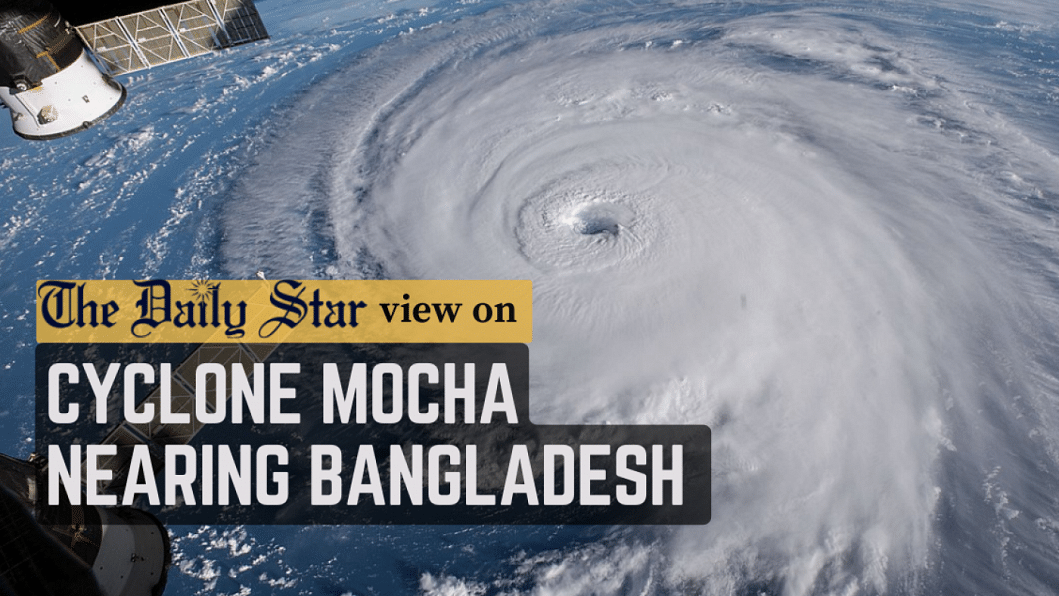Brace for the worst

Cyclone Mocha, the first cyclone of the season and likely the biggest in 16 years, will hit our coastline by Sunday afternoon. The "very severe" cyclonic storm is approaching Bangladesh with a maximum windspeed of 200 kmph. There are concerns that this may result in widespread devastation in Bangladesh's south-west, among other coastal areas, so we must prepare accordingly.
The current trajectory indicates that Cox's Bazar, Chattogram, Feni and Noakhali are among the most vulnerable districts. Meteorologists say the cyclone may make landfall in Teknaf, which is home to refugee camps for the Rohingya who could be heavily exposed to the elements. Officials have also predicted floods in vast areas along the coastline. The priority right now is to fast-track the evacuation process and ensure that no one is left behind, especially older people, children and persons with disabilities. There is also a risk of landslides in the hilly areas, so people there should too be taken to safety.
It is concerning that nearly 50kms of embankment in Chattogram are reportedly compromised. This means that local communities risk being inundated should storm surges triggered by the cyclone breach those. The question is, why were the embankments not fortified? Why do the authorities wait for a cyclone to hit before rushing to make repairs? As for off-shore islands, it is a relief that tourists have been evacuated from St Martin's Island, but what about the 10,000 or so local residents? Shelters have been readied, we are told, but if the island gets cut off from mainland, will locals have access to sufficient food and other vital essentials?
These concerns must be addressed. So far, the government seems convinced that all necessary preparations have been taken. We must brace for the worst, however. Usually, despite warnings, many people do not leave until the last moment and often refuse to leave behind their prized possessions, especially livestock. This is where local authorities must be firm while conducting evacuations. Casualties, both during and in the aftermath of the cyclone, must be avoided at all costs.


 For all latest news, follow The Daily Star's Google News channel.
For all latest news, follow The Daily Star's Google News channel. 








Comments